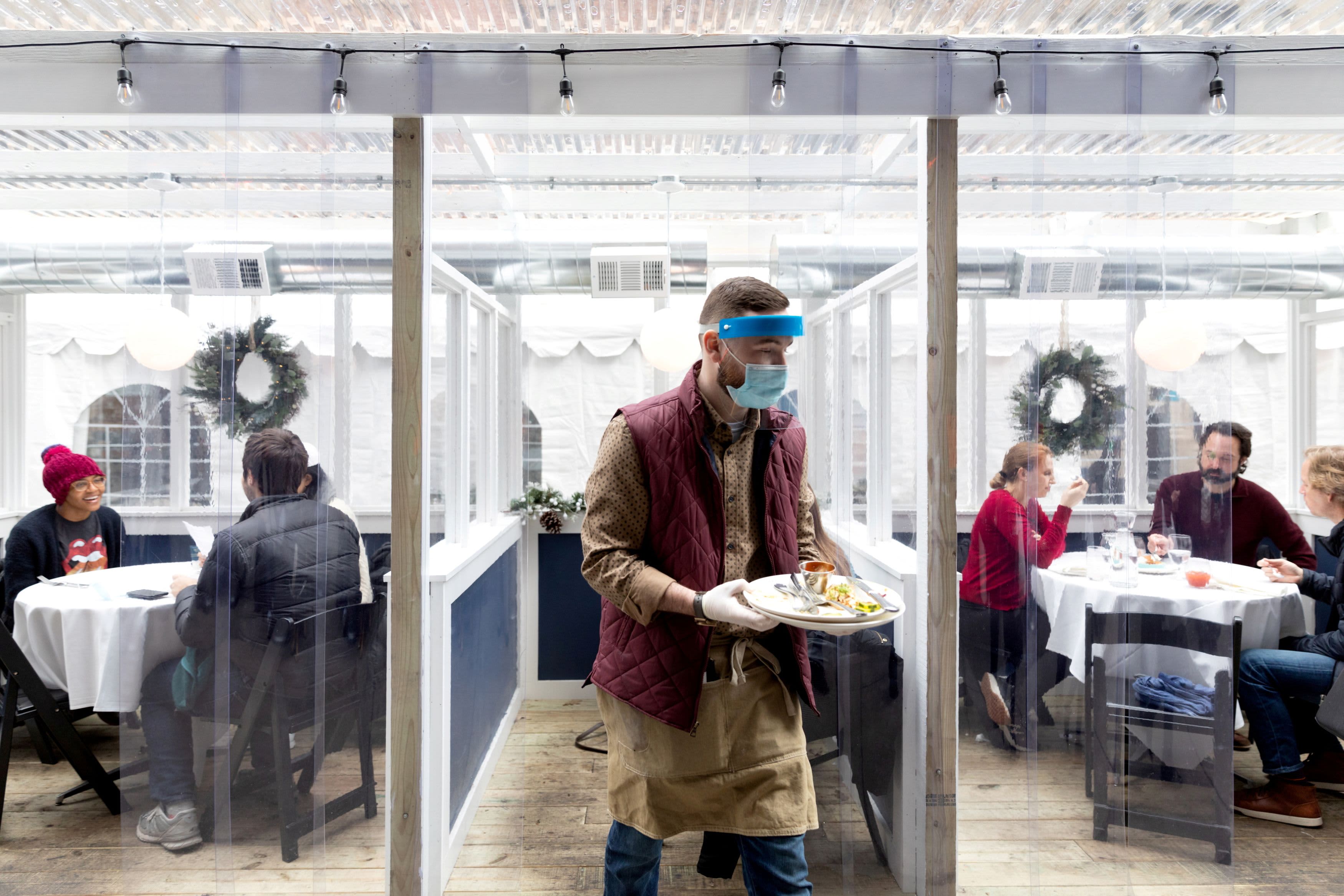While small business owners are cheering President Joe Biden’s plans to direct more aid to a Main Street that has been ravaged by the pandemic, they’re also debating another of his pledges — hiking the federal minimum wage to $15 an hour.
Workers’ rights groups are cheering the move, but advocates for America’s smallest businesses are warning such an increase could stall an already challenging economic recovery on the road back to stability from the health crisis.
Biden’s plans would more than double the current federal minimum wage of $7.25 an hour, which has not moved since 2009, despite repeated efforts by Democrats to increase pay for low-wage workers.
A 2019 report from the Congressional Budget Office projected that hiking the federal minimum wage to $15 an hour gradually by 2025 would increase pay for 17 million workers but could also cost 1.3 million workers their jobs. In addition, it would lift 1.3 million people above the poverty line. While federal minimum pay has been stagnant for more than a decade, more than half of the states in the country have minimum wages above the federal floor and the push for $15 is gaining momentum in states and municipalities as local government takes action.
“We cannot and will not return to the status quo after the pandemic is over, because the status quo isn’t working for us,” said union member Rita Blalock in a release from advocacy group Fight for $15. The group held a strike earlier this month pushing for higher pay in the fast food industry, continuing a years-long effort to expand worker protections and pay.
The economic recovery for small businesses will be a sustained challenge even with stimulus checks on the way to boost consumer spending. Researchers at Opportunity Insights project the number of small businesses in America fell by nearly 30% last year.
A number of industry groups are voicing their concerns. The National Restaurant Association said Biden’s move could cause “more harm than good” to the industry at large. The International Franchise Association also warned the increase could be counterproductive at this time, with Matt Haller, IFA senior vice president of government relations, stating, “a requirement to more than double some workers’ wages will harm struggling businesses and likely slow the recovery.”
Advocacy group the National Federation of Independent Business echoed that sentiment, saying small companies will be disproportionately harmed.
“We are concerned that elements of this plan would hurt the businesses that have borne the lion’s share of the pain from the pandemic,” said Kevin Kuhlman, NFIB vice president of federal government relations, in a statement. “Big business may be fine with a dramatic increase of the federal minimum wage and paid leave mandates as they’ve been thriving during the pandemic, but small businesses know these policies will make it even harder for them to compete against their larger competitors.”
One example of this is Target, which said Monday it would spend $200 million to give its employees another round of bonuses. The discount retailer accelerated its plans to raise its starting wages to $15 an hour in July.
Small business owners like Patrick Guay are assessing what the hike might mean if it clears legislative hurdles and becomes a reality. Guay owns four Mooyah restaurants in Massachusetts and Connecticut, where the minimum wages are $13.50 and $12, respectively. He typically starts younger workers at the minimum wage and pays older workers with more experience and who may be supporting families a higher wage. If the federal minimum hits $15, he’ll have to adjust pay accordingly across the board.
“Every year when minimum wage goes up, you have to reassess your existing employees as well, to create differentiation in their wages. It’s a big concern, you’ve got hourly employees that are coming close to making the same as your salaried general managers in the restaurants,” Guay said. “I’m not sure that it’s fair to burden everything on the small business owner, and then have to have us make the decision as to how much of this we want to pass on to our customers.”
While small business owners may express concerns about higher wages, the vast majority of Americans, some 72%, support the idea of raising the minimum wage, according to an Ipsos poll of 1,114 adults conducted in August, on behalf of Public Agenda and USA Today. Some supporters say that boosting workers’ pay means more money in workers’ pockets, which could benefit small businesses and the economy as a whole.
Small business owner Julia Knight pays a higher than minimum wage at her namesake company, Julia Knight Collection, in Minneapolis. She has three employees, and more than a dozen contractors, and says she never pays less than $20 an hour, as the expertise she needs requires higher pay. Her employees also have health-care coverage. And this has remained true even as her business, which sells high-end tableware, has taken a hit due to the pandemic and economic recession.
“I just don’t like the people that work for me worrying about how they are going to take care of themselves,” Knight said.
She added that to those who are saying $15 an hour is too high, she’d say this: “Have you looked these people in the eye and said, ‘You need to raise a family on $15 an hour’? I don’t see how that works.”
—CNBC’s Betsy Spring contributed to this report.
